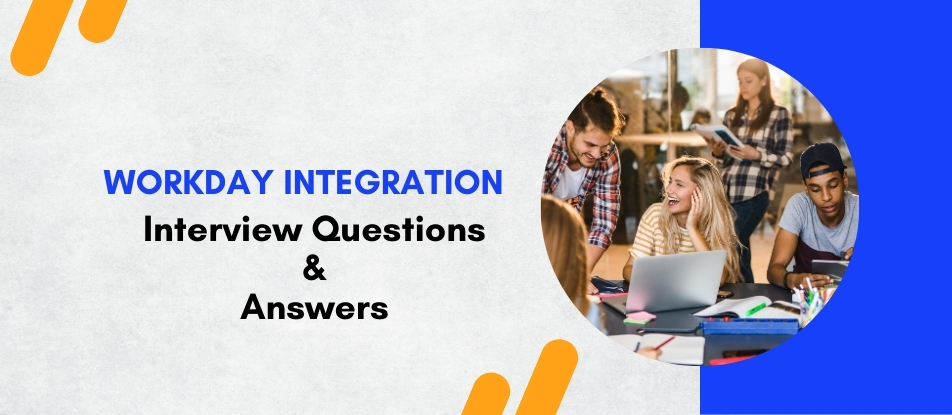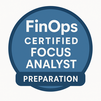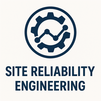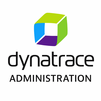
Workday Integration training provides comprehensive knowledge and practical skills needed to build and manage effective integrations. Participants will explore Workday Studio, EIB, and Cloud Connect, focusing on real-world applications and best practices. Gain proficiency in designing, implementing, and troubleshooting integrations to facilitate smooth data flow across systems. This course is perfect for IT professionals aiming to enhance their integration expertise and support organizational efficiency.
Workday Integration Interview Questions Answers - For Intermediate
1. Describe the process of deploying an integration in Workday Studio.
Answer: Deploying an integration in Workday Studio involves packaging the integration components, configuring deployment settings, and uploading the package to Workday. Once deployed, the integration can be tested, monitored, and scheduled for execution. Deployment ensures that the integration is available for use in the production environment.
2. What is the significance of the Workday integration map?
Answer: The Workday integration map defines the data transformations and mappings required for integration. It ensures that data is accurately converted from the source format to the target format, facilitating seamless data exchange between Workday and external systems. The integration map is essential for maintaining data consistency and accuracy.
3. How are custom integrations managed in Workday?
Answer: Custom integrations in Workday are managed using Workday Studio and custom reports. Developers can create bespoke integrations tailored to specific business needs, incorporating custom logic and data transformations. These integrations are maintained and updated through regular testing and monitoring to ensure ongoing functionality.
4. What are Workday integration templates?
Answer: Workday integration templates are pre-configured integration setups that provide a starting point for common integration scenarios. They include predefined mappings, data sources, and logic, reducing the time and effort required to develop new integrations. Templates ensure consistency and best practices in integration design.
5. Explain the concept of a calculated field in Workday integrations.
Answer: A calculated field in Workday is a custom field that derives its value from existing data based on defined logic or formulas. In integrations, calculated fields are used to transform data, perform calculations, and generate derived values required for the integration process.
6. How does Workday support real-time integrations?
Answer: Workday supports real-time integrations through REST and SOAP APIs, which allow for immediate data exchange between Workday and external systems. These APIs enable synchronous communication, ensuring that data is updated in real time, and providing accurate and up-to-date information across integrated applications.
7. What are the common challenges in Workday integrations?
Answer: Common challenges in Workday integrations include data mapping complexities, handling large data volumes, ensuring data security, managing integration errors, and maintaining integration performance. Addressing these challenges requires thorough planning, robust error handling, and continuous monitoring.
8. How is data transformation handled in Workday EIB?
Answer: Data transformation in Workday EIB is handled using mapping templates and transformation rules. Users can define how data fields from the source are mapped to the target format, applying necessary transformations such as data type conversions, calculations, and conditional logic to ensure accurate data integration.
9. What is the role of middleware in Workday integrations?
Answer: Middleware acts as an intermediary layer that facilitates communication and data exchange between Workday and external systems. It handles data transformation, routing, and orchestration, ensuring seamless integration processes. Middleware solutions like Dell Boomi, MuleSoft, and Talend are commonly used in Workday integrations.
10. Describe the use of REST APIs in Workday integrations.
Answer: REST APIs in Workday integrations provide a standardized way to access and manipulate Workday data. They support various operations such as querying, updating, and deleting data. REST APIs enable real-time, synchronous integrations, allowing external systems to interact with Workday efficiently and securely.
11. How are integration sequences managed in Workday Studio?
Answer: Integration sequences in Workday Studio are managed using process flows and orchestration components. Developers can define the order in which integration steps are executed, handle dependencies, and manage parallel processing. This ensures that complex integrations are executed in a controlled and efficient manner.
12. What is the significance of the Integration Event in Workday?
Answer: An Integration Event in Workday is a specific trigger that initiates an integration process. It can be time-based, event-based (such as a data change), or user-initiated. Integration Events ensure that integrations are executed at the right time, based on predefined conditions or triggers.
13. Explain the use of PGP encryption in Workday integrations.
Answer: PGP (Pretty Good Privacy) encryption is used in Workday integrations to secure sensitive data during transmission. It ensures that data is encrypted before being sent to external systems and can only be decrypted by authorized recipients. PGP encryption enhances data security and compliance with regulatory requirements.
14. How are Workday integration logs utilized?
Answer: Workday integration logs capture detailed information about integration execution, including errors, warnings, and processing steps. These logs are used for troubleshooting, performance monitoring, and auditing. Integration logs help identify issues, optimize performance, and ensure that integrations are functioning correctly.
15. What are some best practices for managing Workday integrations?
Answer: Best practices for managing Workday integrations include:
- Designing with Scalability in Mind: Ensure integrations can handle growing data volumes and evolving business needs.
- Implementing Robust Error Handling: Use detailed error logs and notifications to manage and resolve issues promptly.
- Securing Data: Employ encryption, secure APIs, and access controls to protect sensitive data.
- Regular Testing: Perform unit, integration, and end-to-end testing to validate integration logic and data accuracy.
- Monitoring Performance: Continuously monitor integration performance and optimize as needed.
- Using Standard Tools and Templates: Leverage Workday Studio, EIB, and Cloud Connect to standardize integration processes and reduce development time.
- Documentation: Maintain comprehensive documentation of integration processes, configurations, and troubleshooting steps for future reference and knowledge transfer.
These practices help ensure that Workday integrations are reliable, secure, and efficient.
Workday Integration Interview Questions Answers - For Advanced
1. What are Workday integration templates, and how do they simplify the integration process?
Answer: Workday integration templates are pre-configured setups that provide a starting point for common integration scenarios. They include predefined mappings, data sources, and logic, reducing development effort and time. Templates ensure consistency and best practices in integration design, simplifying the integration process.
2. Describe the use of REST APIs in Workday integrations.
Answer: REST APIs in Workday integrations provide standardized access to Workday data. They support operations like querying, updating, and deleting data, enabling real-time, synchronous integrations. REST APIs facilitate efficient and secure data exchange between Workday and external systems, ensuring up-to-date information across integrated applications.
3. What is the role of the Workday integration map, and how is it used?
Answer: The Workday integration map defines data transformations and mappings required for integration. It ensures that data is accurately converted from the source format to the target format, facilitating seamless data exchange between Workday and external systems. The integration map is essential for maintaining data consistency and accuracy.
4. How are custom integrations maintained and updated in Workday?
Answer: Custom integrations in Workday are maintained and updated through regular testing, monitoring, and performance optimization. Changes in business requirements or external systems necessitate updates to integration logic and configurations. Ongoing maintenance ensures that integrations remain functional and efficient.
5. Explain the concept of a calculated field in Workday integrations and its application.
Answer: A calculated field in Workday is a custom field that derives its value from existing data based on defined logic or formulas. In integrations, calculated fields are used to transform data, perform calculations, and generate derived values required for the integration process. This ensures accurate and meaningful data exchange.
6. Discuss the importance of data mapping in Workday integrations and best practices for implementation.
Answer: Data mapping is crucial for accurate data transformation and integration. It involves defining how data fields from the source system map to the target system. Best practices include thorough analysis of data structures, consistent field naming conventions, comprehensive testing, and documentation. Accurate data mapping ensures seamless data exchange and integrity.
7. How are integration sequences managed in Workday Studio?
Answer: Integration sequences in Workday Studio are managed using process flows and orchestration components. Developers define the order of integration steps, handle dependencies, and manage parallel processing. Proper sequencing ensures the controlled and efficient execution of complex integrations.
8. What are the best practices for managing Workday integrations in a large enterprise environment?
Answer: Best practices for managing Workday integrations in a large enterprise include implementing robust error handling, regular performance monitoring, maintaining detailed documentation, conducting thorough testing, ensuring data security, and using standardized tools and templates. These practices ensure reliable, efficient, and secure integrations.
9. How does Workday support real-time integrations, and what are the benefits?
Answer: Workday supports real-time integrations through REST and SOAP APIs, enabling immediate data exchange between Workday and external systems. Benefits include up-to-date information, improved decision-making, and streamlined business processes. Real-time integrations ensure data consistency and accuracy across integrated applications.
10. Explain the role of Workday's Report-as-a-Service (RaaS) in integrations.
Answer: Report-as-a-Service (RaaS) allows Workday reports to be accessed as web services. This enables external systems to request and retrieve report data from Workday in a structured format, facilitating real-time data extraction and integration with other applications. RaaS ensures accurate and timely data availability.
11. What are the considerations for ensuring compliance in Workday integrations?
Answer: Ensuring compliance in Workday integrations involves implementing data protection measures, following industry standards, and adhering to regulatory requirements. Considerations include data encryption, secure access controls, regular audits, and maintaining detailed documentation. Compliance ensures that integrations meet legal and industry standards.
12. How are Workday integration logs utilized for troubleshooting and optimization?
Answer: Workday integration logs capture detailed information about integration execution, including errors, warnings, and processing steps. Logs are used for troubleshooting issues, optimizing performance, and auditing integration activity. Analyzing logs helps identify root causes of problems and areas for improvement.
13. Describe the use of PGP encryption in Workday integrations and its importance.
Answer: PGP (Pretty Good Privacy) encryption is used in Workday integrations to secure sensitive data during transmission. It ensures that data is encrypted before being sent to external systems and can only be decrypted by authorized recipients. PGP encryption enhances data security and compliance with regulatory requirements.
14. What are the benefits and challenges of using Workday Cloud Connect for third-party integrations?
Answer: Benefits of using Workday Cloud Connect include simplified integration processes, reduced development time, standardized interfaces, and seamless updates. Challenges include dependency on pre-built connectors, potential limitations in customization, and the need for regular updates. Cloud Connect provides efficient and reliable integration solutions.
15. How does Workday manage API rate limits, and what strategies can be used to handle them in integrations?
Answer: Workday manages API rate limits to prevent excessive usage and ensure fair resource allocation. Strategies to handle rate limits in integrations include implementing retry logic, batching API calls, optimizing API usage, and monitoring API consumption. These strategies ensure that integrations remain efficient and compliant with rate limits.
Course Schedule
| Jan, 2026 | Weekdays | Mon-Fri | Enquire Now |
| Weekend | Sat-Sun | Enquire Now | |
| Feb, 2026 | Weekdays | Mon-Fri | Enquire Now |
| Weekend | Sat-Sun | Enquire Now |
Related Courses
Related Articles
Related Interview
- SC-100: Microsoft Cybersecurity Architect Training Interview Questions Answers
- IBM Rest API Training Interview Questions Answers
- Workday BIRT Training Interview Questions Answers
- AZ-100 Microsoft Azure Infrastructure and Deployment Training Interview Questions Answers
- API 650 Tank Design Training Interview Questions Answers
Related FAQ's
- Instructor-led Live Online Interactive Training
- Project Based Customized Learning
- Fast Track Training Program
- Self-paced learning
- In one-on-one training, you have the flexibility to choose the days, timings, and duration according to your preferences.
- We create a personalized training calendar based on your chosen schedule.
- Complete Live Online Interactive Training of the Course
- After Training Recorded Videos
- Session-wise Learning Material and notes for lifetime
- Practical & Assignments exercises
- Global Course Completion Certificate
- 24x7 after Training Support












 Join our Live Instructor-Led online classes delivered by industry experts
Join our Live Instructor-Led online classes delivered by industry experts